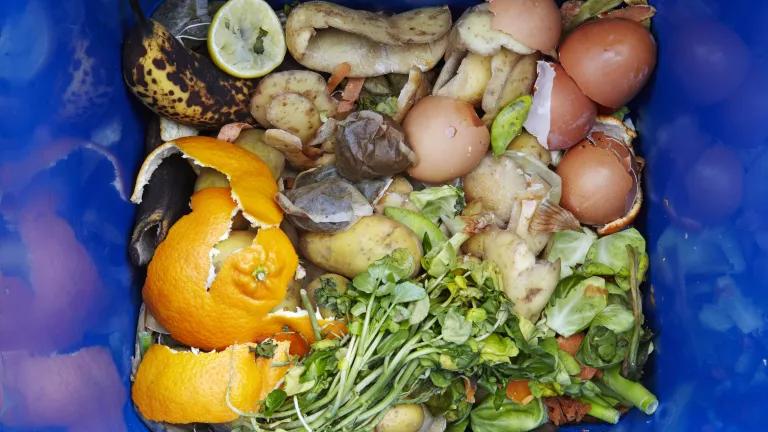Draft National Strategy for Reducing Food Loss and Waste Released
At the end of 2023, a group of federal agencies released a Draft National Strategy for Reducing Food Loss and Waste and Recycling Organics for public comment.

By 2030, we hope to meet the U.S. goal to cut food waste across the nation in half. With less than six years left to meet that national goal, we need strong federal leadership. At the end of 2023, the Environmental Protection Agency (EPA), the United States Department of Agriculture (USDA), and the Food and Drug Administration (FDA) released a Draft National Strategy for Reducing Food Loss and Waste and Recycling Organics for public comment. A national strategy is critical to coordinating federal efforts to achieve the goal. This blog summarizes the comments that NRDC submitted on the Draft National Strategy which focused on strengthening existing proposals and suggested additional areas for engagement.
From the existing proposals and ongoing actions, we are encouraged to see the following:
- National education & behavior change campaign: The Strategy proposed several actions around a national consumer education and behavior change campaign. Such a campaign would include education on the meaning of food date labels and have rigorous measurement components. Another important element the Strategy calls out is that the campaign should be flexible to address needs and cultural differences for various communities.
- Decentralized organics recycling: The Strategy included actions that support and promote decentralized organics recycling, such as community composting and household composting. Infrastructure at the regional and local level is needed to meet our food scrap diversion goals and decentralized operations often bring more immediate benefits to the communities where they are located, such as local job creation and use of compost products in locations like community gardens where food scraps are generated.
- Addressing contamination: The Strategy also outlined actions for addressing contamination in the organic waste recycling stream. Addressing contamination, especially plastic and toxics contamination, is critical to making sure compost is safe to use.
To help strengthen the collaborative federal effort, we also had a few overarching suggestions:
- Reporting progress: Each objective in the Strategy included measurement metrics, but it was unclear how often reporting on these metrics will happen. We recommended frequent public reports on progress and suggested that government entities and agencies should be required to measure and annually report on their progress on actions outlined in the strategy.
- Lead by example: Federal agencies have an incredible opportunity to take the lead in implementing food waste reduction measures and send a clear signal to businesses, state and local government facilities, and other organizations across the country that wasting food is unacceptable. For example, federal facilities should measure, prevent, and recycle organic waste; donate surplus food; and purchase finished compost products. We suggested the Strategy include specific commitments to lead by example within federal agencies.
- Create a whole-of-government strategy: Many federal agencies such as the Department of Education and the Department of Defense have major food service components and could make a significant impact on food waste reduction but, to our knowledge, public food waste reduction plans. We recommended that these agencies be added to the Federal Interagency Collaboration to Reduce Food Loss and Waste to build out a more robust whole-of-government approach to tackle food waste. We also recommended these same agencies incorporate their food waste reduction commitments into the National Strategy.
The release of the Draft National Strategy is a milestone in the federal government’s food waste reduction work. Many stakeholders, including the Zero Food Waste Coalition (of which NRDC is a founding member) submitted comments outlining additional ways the federal agencies can strengthen their commitment and their activities to reduce food waste. We will advocate for our comments to be incorporated and urge that the Strategy is not just finalized, but the actions laid out therein are fully implemented. Only by working in coordinated effort across all levels of government and civil society will we achieve our national goal of reducing food waste by half.



